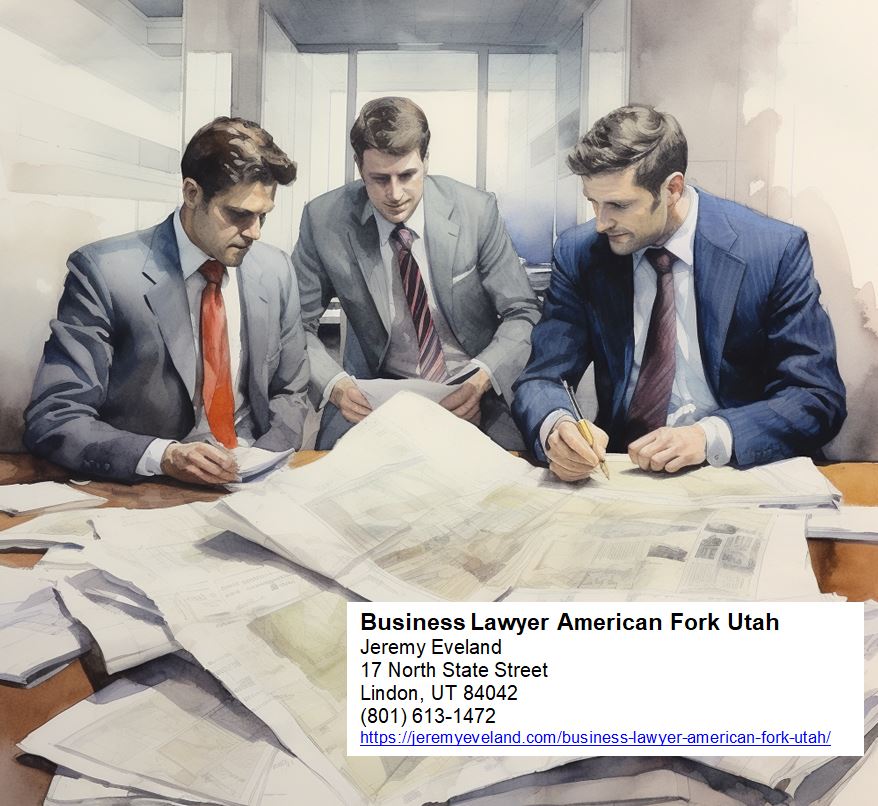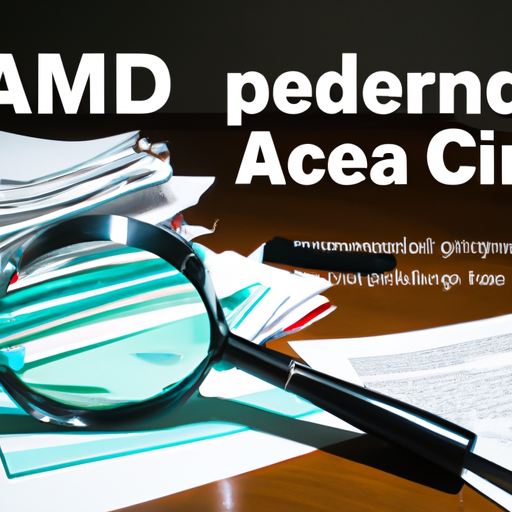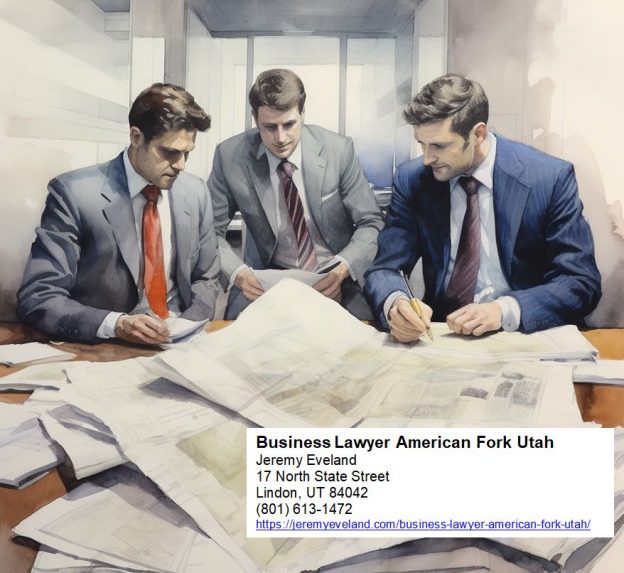The Comprehensive Guide to Business Lawyers in American Fork, Utah: Why You Need One and How to Choose the Right One for Your Business
The Importance of Having a Business Lawyer in American Fork, Utah
Starting a business is an exciting venture. However, there are legal requirements and regulations that must be adhered to in order to ensure your business runs smoothly and legally. This is where having a business lawyer comes in.
In American Fork, Utah, having a local business lawyer who understands the specific laws and regulations can be especially valuable. A business lawyer can assist with various aspects of starting and operating a business, including entity formation, contract drafting and review, intellectual property protection, employment law advice, and more.
With their knowledge of the legal system and experience in handling similar cases, they can offer invaluable guidance to help protect your company from potential disputes or lawsuits. Furthermore, having a relationship with a trusted business lawyer can be beneficial for ongoing legal needs as your company grows.
They can assist with reviewing lease agreements or negotiating contracts with vendors or clients. A skilled business lawyer can also help you navigate complex issues such as mergers and acquisitions.
An Overview of What a Business Lawyer Does
A business lawyer focuses on legal matters related to businesses. They provide advice on various aspects of operating a company while staying compliant with state laws and regulations. From simple tasks such as drafting legal documents to complex ones like litigating disputes between companies or individuals- these lawyers handle it all for businesses.
As mentioned earlier, some areas where a business lawyer’s expertise may be needed include entity formation (LLCs), contract drafting & review (independent contractor agreements), trademarking & copyrighting procedures (intellectual property protection). Additionally experienced lawyers may have knowledge about regulatory compliance that starts from registering the company name until the final stages of operation.

The benefits of having an expert by your side cannot be overstated; it is essential for any company looking towards long-term success to have one on speed dial! A good attorney will help you avoid costly mistakes and potential legal disputes that could otherwise damage your company’s reputation and bottom line.
Not only this, business lawyers can advise on a wide range of legal issues beyond those related to day-to-day operations, such as employee relations, insurance coverage or taxation requirements. Simply put- they are the go-to resource for any and every legal question that may come up during the lifetime of a business.
The Benefits of Having a Business Lawyer in American Fork, Utah
Hiring a business lawyer in American Fork, Utah has various benefits beyond just having access to an experienced attorney. Since they are familiar with the specific laws and regulations applicable to businesses operating in the area, they can provide tailored guidance that is not available elsewhere. Additionally, local lawyers often have contacts within the community which can help with networking opportunities or finding solutions to problems more efficiently.
Because these lawyers know how things work within the area’s legal system, they are better equipped than outside counsel to provide precise advice regarding local court procedures and other compliance issues unique to American Fork. By outsourcing your legal needs through hiring an attorney you ensure that your resources (time/money) can be devoted towards important aspects of growing your business rather than getting bogged down in compliance and legal formalities.
– hiring an experienced business lawyer is essential for any company looking towards long-term success in American Fork. They offer invaluable guidance on a variety of issues from entity formation to ongoing regulatory compliance assistance while also being able to maintain relationships within their local community which opens up opportunities for future growth!
Why Hire a Business Lawyer in American Fork, Utah?
Starting and operating a business in American Fork, Utah comes with various legal obligations that entrepreneurs must comply with. These legal requirements are designed to protect the interests of both the business and its customers.
However, navigating through these requirements can be complex for an entrepreneur who lacks legal expertise. That is why hiring a business lawyer in American Fork, Utah is essential.
The Legal Requirements for Starting and Operating a Business in American Fork, Utah
In American Fork, Utah, businesses are required to register with the appropriate state agencies and obtain necessary licenses before they can begin operations. Depending on the nature of your business, you may also need to comply with zoning regulations and obtain permits from local authorities. Additionally, businesses must adhere to federal laws such as labor laws and consumer protection laws.
In recent years, there has been an increased focus on data privacy regulations such as GDPR and CCPA. Businesses operating in American Fork must also comply with such regulations.
How a Business Lawyer Can Help with Legal Compliance and Avoiding Potential Lawsuits
A business lawyer can help you navigate through these complex legal requirements by providing guidance on applying for permits or licenses required by state or local government agencies. They can also assist you with drafting contracts that meet legal standards so that you do not leave yourself exposed to potential lawsuits. If your business faces any litigation-related issues like disputes among partners or employees or grievances filed against you by customers or competitors; having an experienced attorney who understands the nuances of civil litigation can be invaluable in resolving them quickly while minimizing liability exposure.
The Advantages of Having a Local Lawyer Who Understands Unique Laws And Regulations In American Fork
Hiring an attorney who knows the ins-and-outs of specific industries or regions can be hugely beneficial for businesses. When it comes to American Fork, Utah, having a local business lawyer is highly advantageous.
They will understand the specific laws and regulations that apply in that region, making it easier for them to provide relevant legal advice tailored to your business’s individual needs. Moreover, a local attorney can become an integral part of your company’s advisory team and assist you in negotiating contracts with other businesses or drafting agreements with employees or contractors.
Conclusion
Hiring a business lawyer in American Fork, Utah is essential for any entrepreneur who wants to establish and run a successful business while minimizing legal risks. A good attorney will help ensure that you comply with all necessary regulations and protect your interests if any legal issues arise. Moreover, having a local attorney who understands the unique laws and regulations can give you an edge over competitors by providing tailored advice relevant to the region’s specific context.
Services Offered by Business Lawyers in American Fork, Utah
Contracts and Agreements
One of the most important services offered by business lawyers is contract drafting and review. A contract is a legally binding agreement between two or more parties and it is vital to have a well-drafted contract to protect your business interests. A business lawyer can help you draft contracts for various purposes such as employment contracts, vendor agreements, non-disclosure agreements, and more.
They can also review existing contracts to ensure that they are legally sound and favorable for your business. For example, let’s say you are planning to hire a new employee for your startup in American Fork, Utah.
A business lawyer can help you draft an employment contract that outlines the terms of the job including salary, benefits, job duties, and termination conditions. This will ensure that both parties understand their obligations and rights.
Entity Formation
When starting a new business in American Fork, Utah, one of the first steps is choosing the right entity type such as a sole proprietorship, partnership, LLC or corporation. Each entity type has its benefits and drawbacks depending on factors like ownership structure and tax implications. A business lawyer can guide you through the process of selecting an entity type that best suits your needs.
Additionally, if you choose to form an LLC or corporation for your business in American Fork, a lawyer can help with filing the necessary paperwork with the state government. This includes preparing articles of incorporation/organization as well as bylaws that outline how your company will be run.
Intellectual Property Protection
Intellectual property (IP) refers to creations of the mind such as inventions (patents), artistic works (copyrights), logos/symbols (trademarks), etc. IP protection is essential for businesses since it helps them maintain their competitive edge in the market. It can also prevent others from using your ideas and profiting off them without permission.
A business lawyer can help you register your IP with the relevant authorities in American Fork, Utah. They can also help identify potential infringements and take measures to protect your IP rights.
Employment Law Advice
Employment law governs the relationship between employers and employees. It covers aspects such as hiring, firing, workplace safety, discrimination/harassment, and more.
A business lawyer can advise you on employment law matters to ensure that you comply with federal and state regulations. For example, if an employee files a complaint against your business in American Fork for discrimination or harassment, a lawyer can help investigate the matter and provide legal guidance on how to handle it.
Litigation Support
Despite best efforts to avoid legal disputes, sometimes they are unavoidable. In such cases, having an experienced business lawyer on your side is vital.
They can represent you in court or mediation proceedings to protect your interests. For instance, if a former partner or employee sues your business in American Fork for breach of contract or intellectual property theft, a lawyer can provide litigation support services including drafting legal pleadings and representing you in court hearings.
Business lawyers offer a wide range of services essential for the success of any business operating in American Fork Utah. From contract drafting to litigation support services they play an important role in ensuring that businesses comply with the relevant laws and regulations while protecting their interests.
How to Choose the Right Business Lawyer in American Fork, Utah
Choosing the right business lawyer for your company can be a daunting task. With so many options available, it can be challenging to determine which lawyer will best meet your needs. However, selecting the right business lawyer is crucial to ensuring that your company receives the legal advice and representation it requires.
Factors to Consider When Choosing a Business Lawyer
When choosing a business lawyer in American Fork, Utah, there are several crucial factors to consider: Experience: Look for a business lawyer who has experience representing companies similar to yours in size and industry. An experienced attorney will have knowledge of common legal issues that arise in your field and will be better equipped to provide effective solutions.
Expertise: Determine if the attorney specializes in any areas of law relevant to your company’s operations or goals. For example, if you are looking for help with intellectual property protection or contract drafting, finding an attorney with specific expertise in those areas can be beneficial.
Availability: Make sure that the attorney has sufficient time and capacity to handle your legal needs promptly. If you have urgent legal issues that require immediate attention, it’s important to confirm that the attorney is available when needed.
Communication Skills: Choose an attorney who communicates effectively and consistently. The right business lawyer should keep you informed about developments in your case and respond promptly when you have questions or concerns.
Cost: While cost should not be the only factor you consider when selecting a business lawyer, it’s essential to choose an attorney whose fees are reasonable and transparent. Be upfront about your budget during initial consultations so that there are no surprises later on.
Tips for Researching Potential Lawyers
To find potential lawyers who meet these criteria, start by asking colleagues or industry associations for referrals. You can also use online directories or search engines to find attorneys in your area. Once you have a list of potential attorneys, research them thoroughly before scheduling consultations.
Here are some tips for researching potential lawyers: Check Credentials: Verify that the attorney is licensed to practice law in Utah and has no disciplinary actions against them.
Read Reviews: Look for reviews and testimonials from previous clients to get a sense of the attorney’s reputation and track record. Review Their Website: Visit their website to get a sense of their areas of expertise, experience, and philosophy.
Questions to Ask During Consultations
Once you have narrowed down your list of potential business lawyers, schedule consultations with each one. During these consultations, ask questions that will help you determine if the lawyer is a good fit for your company. Here are some questions to consider asking:
– What experience do you have representing companies similar to mine? – What is your approach to resolving legal issues?
– How do you communicate with clients? – What fees can I expect for your services?
– How quickly do you typically respond to client inquiries? By considering these factors when selecting a business lawyer in American Fork, Utah, and conducting thorough research into potential attorneys, you can find the right legal partner who will help protect your company’s interests and ensure its long-term success.
Frequently Asked Questions About Business Lawyers in American Fork, Utah
How much does a business lawyer cost?
The cost of a business lawyer can vary depending on the type and complexity of the legal matter. Some lawyers charge an hourly rate while others offer flat fees for certain services.
Before hiring a lawyer, it is important to discuss fees and billing practices upfront to avoid unexpected charges. It is also worth noting that the cost of hiring a business lawyer can be much less than the potential costs of legal disputes or noncompliance with laws and regulations.
Do I need a business lawyer if I am just starting out?
Yes, it is recommended that new businesses consult with a business lawyer before getting started. A lawyer can help with entity formation, drafting contracts, obtaining necessary licenses and permits, and setting up employment policies. By working with a business lawyer from the outset, businesses can avoid costly mistakes and set themselves up for success.
What should I look for when choosing a business lawyer?
When choosing a business lawyer in American Fork, Utah, it is important to consider their experience in handling similar legal matters as well as their communication skills and availability. It is also worth researching their reputation within the legal community and reading reviews from past clients. Additionally, it may be helpful to choose a local attorney who has knowledge of the unique laws and regulations in American Fork.
Can I use online legal services instead of hiring a business lawyer?
While online legal services may seem like an appealing option due to lower costs, they often lack the personal attention and customized advice that comes with working directly with an attorney. Additionally, online services may not be familiar with the specific laws and regulations in American Fork or other local areas. Hiring a knowledgeable local attorney can provide peace of mind knowing that your legal matters are being handled properly.
Conclusion
Hiring a business lawyer in American Fork, Utah can provide numerous benefits for businesses of all sizes. From legal compliance to contract drafting and review, a skilled attorney can help businesses navigate complex legal matters and avoid costly mistakes.
While the cost of hiring a business lawyer may seem daunting, it is important to remember that the potential costs of legal disputes or noncompliance with laws and regulations can be much higher. By choosing a local attorney with experience in handling similar legal matters and strong communication skills, businesses can set themselves up for success.
Areas We Serve
We serve individuals and businesses in the following locations:
Salt Lake City Utah
West Valley City Utah
Provo Utah
West Jordan Utah
Orem Utah
Sandy Utah
Ogden Utah
St. George Utah
Layton Utah
South Jordan Utah
Lehi Utah
Millcreek Utah
Taylorsville Utah
Logan Utah
Murray Utah
Draper Utah
Bountiful Utah
Riverton Utah
Herriman Utah
Spanish Fork Utah
Roy Utah
Pleasant Grove Utah
Kearns Utah
Tooele Utah
Cottonwood Heights Utah
Midvale Utah
Springville Utah
Eagle Mountain Utah
Cedar City Utah
Kaysville Utah
Clearfield Utah
Holladay Utah
American Fork Utah
Syracuse Utah
Saratoga Springs Utah
Magna Utah
Washington Utah
South Salt Lake Utah
Farmington Utah
Clinton Utah
North Salt Lake Utah
Payson Utah
North Ogden Utah
Brigham City Utah
Highland Utah
Centerville Utah
Hurricane Utah
South Ogden Utah
Heber Utah
West Haven Utah
Bluffdale Utah
Santaquin Utah
Smithfield Utah
Woods Cross Utah
Grantsville Utah
Lindon Utah
North Logan Utah
West Point Utah
Vernal Utah
Alpine Utah
Cedar Hills Utah
Pleasant View Utah
Mapleton Utah
Stansbury Par Utah
Washington Terrace Utah
Riverdale Utah
Hooper Utah
Tremonton Utah
Ivins Utah
Park City Utah
Price Utah
Hyrum Utah
Summit Park Utah
Salem Utah
Richfield Utah
Santa Clara Utah
Providence Utah
South Weber Utah
Vineyard Utah
Ephraim Utah
Roosevelt Utah
Farr West Utah
Plain City Utah
Nibley Utah
Enoch Utah
Harrisville Utah
Snyderville Utah
Fruit Heights Utah
Nephi Utah
White City Utah
West Bountiful Utah
Sunset Utah
Moab Utah
Midway Utah
Perry Utah
Kanab Utah
Hyde Park Utah
Silver Summit Utah
La Verkin Utah
Morgan Utah
Business Lawyer American Fork Consultation
When you need help from a Business Lawyer near American Fork Utah, call Jeremy D. Eveland, MBA, JD (801) 613-1472 for a consultation.
Jeremy Eveland
17 North State Street
Lindon UT 84042
(801) 613-1472
Home
Related Posts
How To Structure A Merger Or Acquisition In Utah
How To Hire Employees Legally in Utah
Business Lawyer Herriman Utah
10 Tips for Negotiating Lease Agreements
Business Lawyer Spanish Fork Utah
How To Start A Non-Profit In Utah
Business Lawyer Roy Utah
What are the Trademark Laws in Utah
Business Lawyer Pleasant Grove Utah
Utah Wholesale Business Law
Business Lawyer Kearns Utah
How to Form an LLC in Utah
Business Lawyer Tooele Utah
How to Calculate Overtime Pay in Utah
Business Lawyer Cottonwood Heights Utah
Understanding Utah’s Consumer Protection Laws
Business Lawyer Midvale Utah
Comprehensive Guide To Hiring A Business Lawyer
Business Lawyer Springville Utah
Mergers and Acquisitions from a Legal Perspective
Business Lawyer Eagle Mountain Utah
Understanding Anti-Trust Laws in Utah
Business Lawyer Cedar City Utah
Understanding LLC Laws in Utah
Business Lawyer Kaysville Utah
Understanding Utah’s Non-Profit Laws
Business Lawyer Clearfield Utah
Telemarketing Lawyer
Business Lawyer Holladay Utah
Business Organizations
Business Lawyer American Fork Utah











